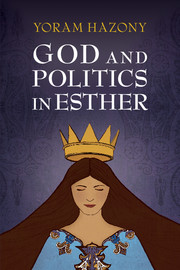Book contents
- Frontmatter
- Dedication
- Contents
- Preface
- Introduction
- Esther One
- Esther Two
- Esther Three
- 3 The Enemy
- 4 The King's Men
- 5 Idolatry
- 6 Disobedience
- 7 Joseph
- 8 Amalek
- 9 Anti-Semitism
- Esther Four
- Esther Five
- Esther Six
- Esther Seven
- Esther Eight
- Esther Nine
- Afterwords
- Notes
- Index of Names
- Scriptural and Rabbinic References
- The Hebrew Esther Text
- Miscellaneous Endmatter
9 - Anti-Semitism
from Esther Three
Published online by Cambridge University Press: 05 March 2016
- Frontmatter
- Dedication
- Contents
- Preface
- Introduction
- Esther One
- Esther Two
- Esther Three
- 3 The Enemy
- 4 The King's Men
- 5 Idolatry
- 6 Disobedience
- 7 Joseph
- 8 Amalek
- 9 Anti-Semitism
- Esther Four
- Esther Five
- Esther Six
- Esther Seven
- Esther Eight
- Esther Nine
- Afterwords
- Notes
- Index of Names
- Scriptural and Rabbinic References
- The Hebrew Esther Text
- Miscellaneous Endmatter
Summary
More than a century has passed since the term “anti-Semitism” was invented as another way of referring to hatred of Jews. Today it has come into wide use, yet it conveys as little as it ever did. It still takes no more effort to explain that one “hates Jews” than it does to ascribe “anti-Semitism” to him; and the Jews, of course, were never actually hated for being Semitic, that is, a people of Middle Eastern origin. But the failure to have found a more meaningful name for the disease only reflects on how little we understand it. Some have said that anti-Semitism is a byproduct of Christianity, yet it has haunted Islam from its very foundations. Some have believed it is to be matter of religious persecution, although the Nazis made it a matter of race. And some have argued that it arises from ignorance, yet it has claimed many of the most brilliant minds in history. Anti-Semitism is everywhere, and no race nor creed nor time seems impervious to it. Every people rises and falls, except the Jews. And no hatred has ever been so great, so abiding, and so permanent as the hatred of the Jews. What does it mean?
The Jewish people came into being with anti-Semitism. Indeed, the first time in history that we encounter the Jews as a people, it is amid the rage of an enemy and his plot to destroy them:
The children of Israel were fruitful and increased abundantly and multiplied and grew exceedingly mighty and the land was filled with them. Now there arose a new king over Egypt who knew not Joseph. He said to his people: “Behold, the people of Israel are more and mightier than we. Come, let us deal wisely with them lest they multiply and it come to pass that when any war should chance, they also join our enemies and fight against us and go up out of the land.” Therefore they set taskmasters over them to afflict them with their burdens .… But the more they afflicted them the more they multiplied and grew, and they were mortified on account of the people of Israel .… And Pharaoh charged all his people saying: “Every son that is born will you cast into the Nile, and every daughter will you keep alive.”
[…]
- Type
- Chapter
- Information
- God and Politics in Esther , pp. 70 - 76Publisher: Cambridge University PressPrint publication year: 2015



